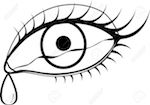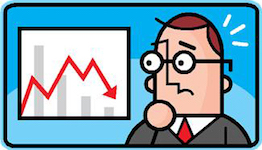Lobster
The lifestyle of a lobster has never particularly interested me, apart from wondering how it ends up on my plate. But here’s what I found out during the Christmas break:
Like the rest of us, lobsters are born small and grow bigger throughout their lives. However, their shell doesn’t grow with them. The poor old lobster has to shed its carapace so that it can make another.
Can you imagine the effort involved in taking off its armour? And how vulnerable the creature is when it’s naked? Out of modesty, but primarily to protect itself, the lobster hides under a rock, painfully removes its shell and then waits patiently for the new one to grow before emerging clad in its brand-new, and bigger, costume.
Now imagine our lobster is a man who has no desire to suffer or be exposed to danger. He would go to the doctor’s to ask for pain relief … And he would stay small and uncomfortable in clothes that no longer fit him properly.
When I heard this story, I couldn’t help thinking about all those people who avoid any kind of conflict, quarrels or upheavals. What if we actually need these things to be able to move forward in life?
What upheaval do you need to go through before you can move on with your life?
Eyes
They say that the eyes are the window to the soul
In Rome, whenever I see an imposing parasol pine set against a sunny blue sky, my eyes well up because it is just so beautiful. My eyes sparkle as I am served a glass of well-chilled Prosecco. And I invariably have tears in my eyes when contemplating the sheer immensity of St. Peter’s Basilica.
When my eyes speak to me like this, it’s always a sign that I find something moving. My soul is speaking to me while my brain is busy being a tourist. In these magical moments, I switch off my brain so that I can enjoy the fleeting instants of happiness.
When did your eyes last speak to you? Did you listen to them? If you did, then you’re capable of remembering the things that move you deeply whenever you want – instead of just carrying on living life on a superficial level.
A commodity
The person sitting next to me told me that his wife had left him for another man. A banker by profession, his analysis of what had happened was not entirely lacking in humour.
He realised that he had treated his wife like a commodity (a basic necessity such as coffee or wheat on the stock market).
He told me that after 30 years of marriage, you no longer see the woman that you fell in love with but a housemate with whom you share household tasks, bills, child rearing and other daily chores.
Until the day someone else comes along and sees her as the luxury product that you have lost sight of over the years.
As a woman I wasn’t exactly delighted to be compared with a stock market commodity but I could see what he was getting at.
What about you? Do you still see the luxury product that you fell for in the first place or do you just see a commodity in your partner?
Nietzsche
“He who has a why to live for can bear almost any how.”
– Friedrich Nietzsche
Dr Victor Frankl, the inventor of logotherapy (finding meaning in one’s life), often quotes Nietzsche in his book “Man’s Search for Meaning” in which he also tells a wonderful story:
An elderly man who had been inconsolable after losing his wife five years earlier, came to see him for a consultation. The man found life unbearable without her. Rather than offering off-the-shelf solutions or advice, Dr Frankel asked him how his wife would have felt if he had died first. He replied that she would have been lost and lonely and probably as inconsolable as he was, if not more so.
“So because you have survived her, you’ve spared her the experience of being the one left behind.”
The man thought about it at length, before standing up and saying to the doctor that he could live with that, that his suffering now had meaning, whereupon he left.
Frankl had survived four concentration camps. He observed that the survivors were not the strongest physically, but those who found meaning in life or a reason to carry on living.
What about you? When did you last give up instead of finding some meaning in what was happening to you, so that you could learn from it and carry on?
Choosing to trust people
As I was going through security at an Italian airport, I realised that my tablet wasn’t in my rucksack. I thought: “maybe I left it in the hire car”, but I wasn’t sure.
I dashed back to the car hire desk. A young guy behind a pair of mirrored sunglasses rather offhandedly informed me that the car had gone to be cleaned and the car wash operator was on his lunch break. Aaargh.
He offered to call me when both reappeared. I was a bit dubious but decided to trust him. I refused to believe that my iPad had been stolen. I went back to the terminal building, through security again and ate a sandwich while waiting for him to call.
My telephone rang. I went back through security a third time to collect my tablet and thank the car hire agent profusely.
Did the fact that I chose to believe in these people’s honesty have something to do with my iPad being found? Without evidence to the contrary, I like to think that my decision to trust them influenced the outcome.
What do you trust in enough to influence the outcome of events?



